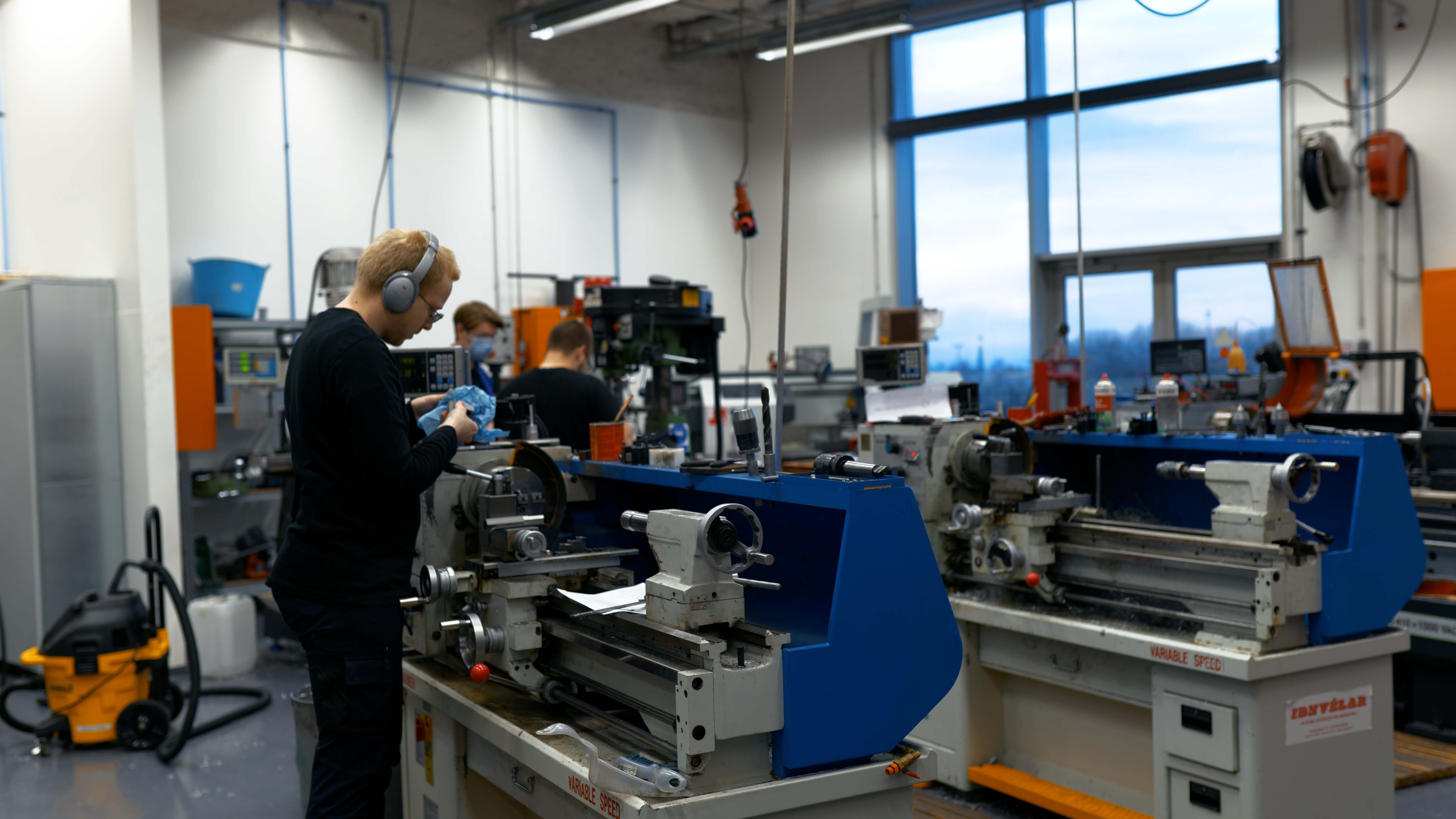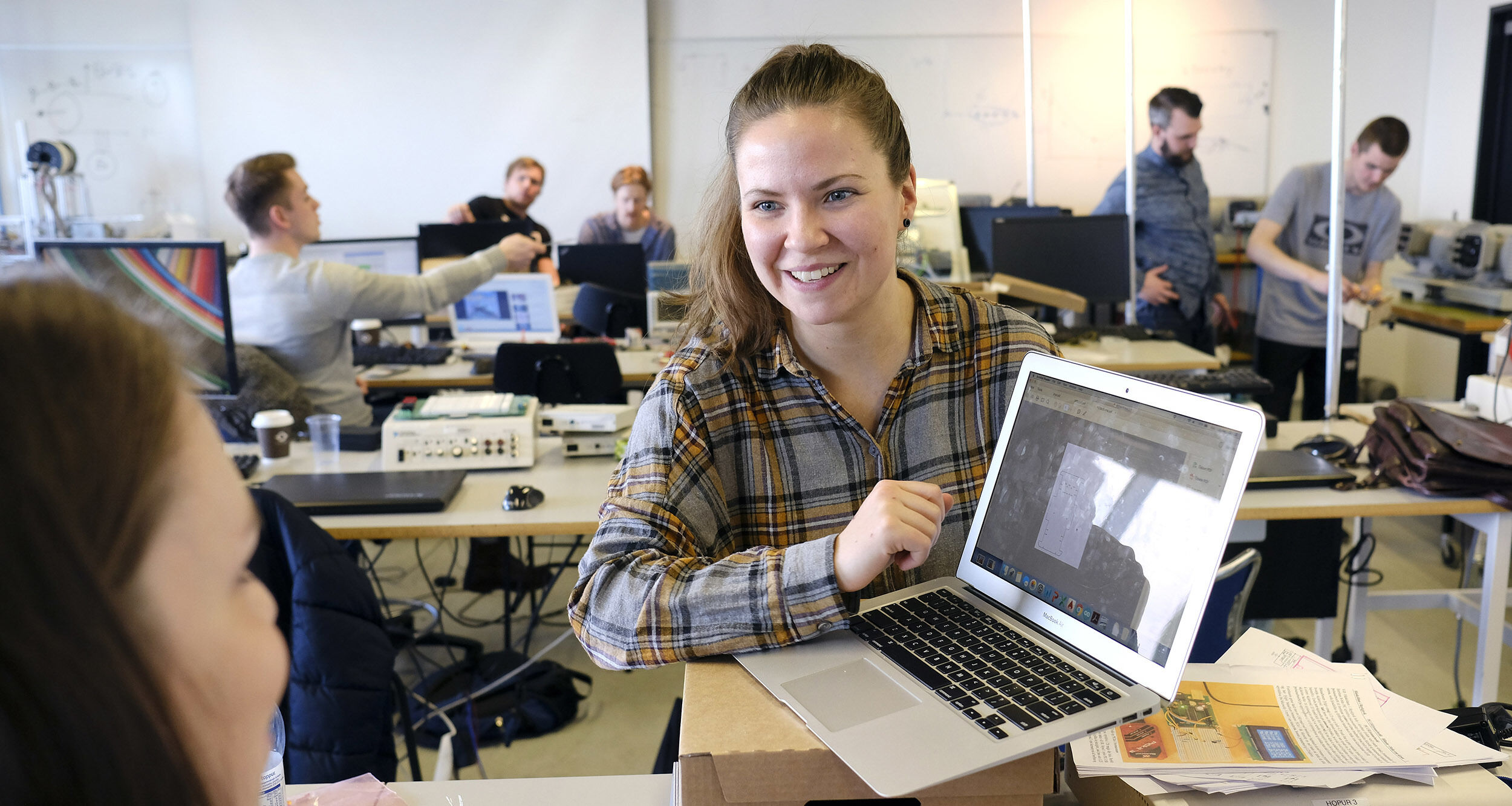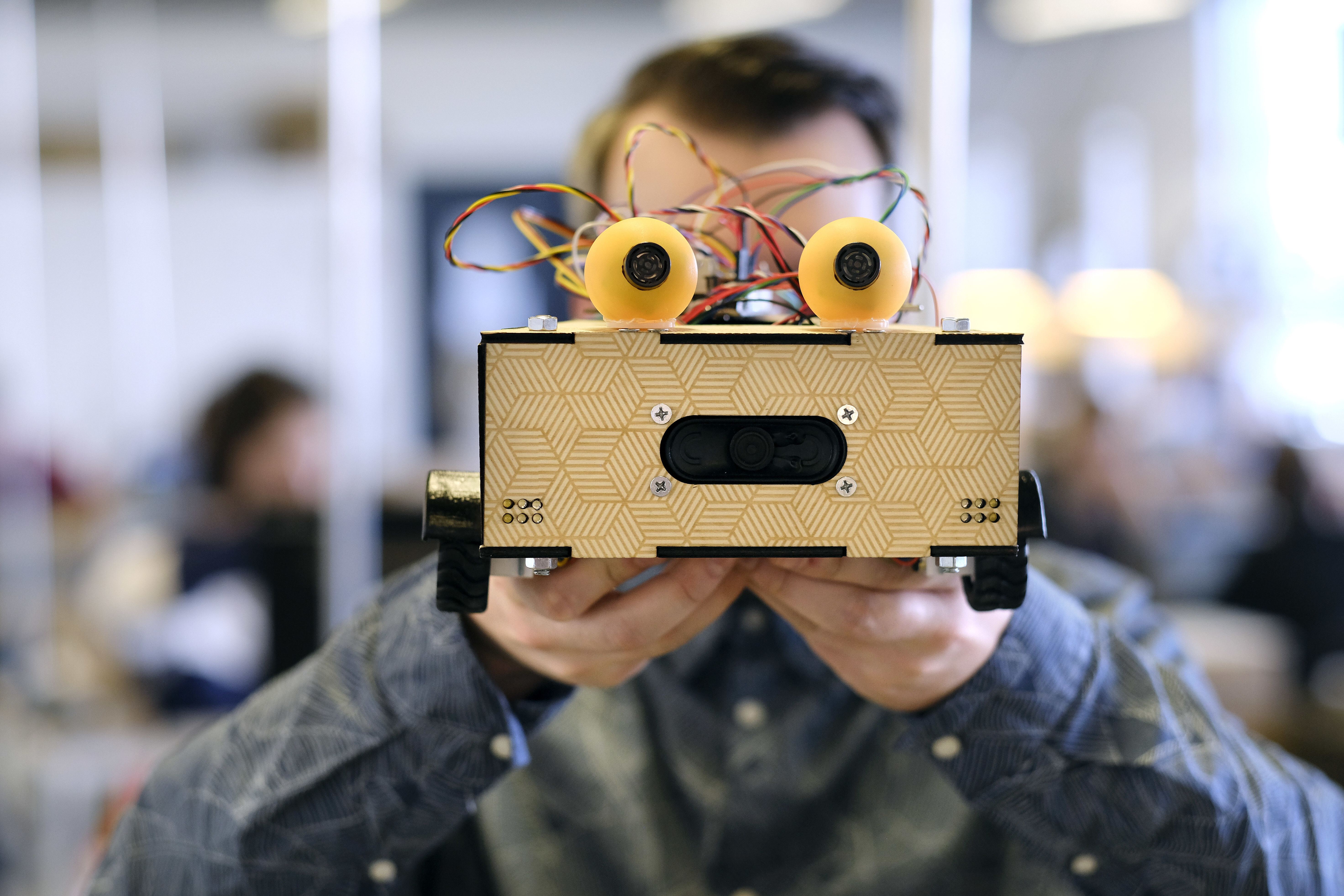School of Technology
The School of Technology spans the range from theoretical computer science and physics, to artificial intelligence and mechatronics, to applied engineering and web-programming.
The school uses project-based learning to train students in applying the underlying theories to real-world problems. Excellence in research both drives the pursuit of knowledge and provides training to students at all levels.
Motivated in part by the United Nations Sustainable Development Goals, the School of Technology has defined four major themes – Sustainability, Data-Driven Healthcare, Traceability, and Language Technologies – to drive research, teaching and external partnerships.
The School offers study programmes in computer science and engineering in three different departments. Courses are at BSc and MSc levels, complementing a research-oriented PhD programme. Graduate pro- grammes and a large proportion of undergraduate courses are offered in English.
Research is carried out in increasingly interdisciplinary centres that focus on a wide range of societal goals
such as biomechanics, applied neuroscience, tissue engineering, structural and earthquake engineer-
ing, rheology, microwave engineering, optimisation, language technology, electrical power engineering,
turbulence, sustainability, nanotechnology, risk and decision analysis, project management, sleep, artificial
intelligence, virtual environments, software engineering, databases, voice and natural language process-
ing, human-computer interaction, financial technologies and theoretical computer science.
Dr Gísli Hjálmtýsson is Dean of the School of Technology.
Department of Applied Engineering

- Department Chair: Hera Grímsdóttir
- Department of Applied Engineering
The Department of Applied Engineering offers vocational education at university level, with an emphasis on the practical applications of engineering theories. This emphasis attracts students with vocational training, as well as with traditional matriculation examination.
The Department emphasises extensive collaboration with the industry and integrates professional teamwork in numerous projects that include design, construction, and testing. The Department is a member of the CDIO Initiative.
The Department is undergoing significant growth, in large part because of a strategic effort to attract students with vocational training. The effort is driven by four objectives: facilitating the transition from vocational training to academia, increasing access to and visibility of the study programmes, and ensuring teaching quality while maintaining fiscal viability. The Department was founded in March 2019 and the enrolment has increased from around 95 students in the autumn of 2018 to around 220 students in the autumn of 2020.
Courses offered within the Department are for Bachelor's degrees in Applied Engineering and Construction Architecture as well as several part-time diplomas. All courses are taught in Icelandic.
Undergraduate programmes
-
Applied Civil Engineering, BSc
-
Applied Electrical Engineering, BSc
-
Applied Mechanical/Energy Engineering, BSc
-
Construction Architecture, BSc
-
Construction Technology, Diploma
-
Electrical Technology, Diploma
-
Mechanical Technology, Diploma
-
Business Administration, Diploma
-
Building Information Modeling, Diploma
Department of Computer Science

- Department Chair: Dr Luca Aceto
- Department of Computer Science
All study programmes within the Department of Computer Science emphasise quality of teaching and balance a strong theoretical foundation with knowledge of up-to-date practical technologies and methods. The Department encourages inter- disciplinary study paths, with minors or second majors, across all departments at RU.
Three of the Department's study programmes, Computer Science (BSc and MSc) and Discrete Mathematics and Computer Science (BSc), have received international accreditation through the European Quality Assurance Network for Informatics Education (EQANIE). Those are the only internationally accredited study programmes of their kind in Iceland.
Undergraduate programmes
-
Applied Computing, Diploma
-
Computer Science, BSc
-
Computer Science, research-based, BSc
-
Software Engineering, BSc
Discrete Mathematics and Computer Science, BSc
Graduate programmes
-
Computer Science, MSc
-
Software Engineering, MSc
-
Computer Science, Double Degree Programme UNICAM, MSc
-
Data Science, MSc
-
Applied Data Science, MSc
-
Artificial Intelligence and Language Technology, MSc
-
Nordic Master in Intelligent Software Systems, MSc
-
Computer Science, PhD
Department of Engineering

- Department Chair: Dr Ágúst Valfells
- Department of Engineering
The Department of Engineering offers study programmes in engineering at all levels, with additional graduate programmes in project management, energy science, and the operation of electrical grid/systems.
The Department offers programmes where technical courses, emphasising engineering methodology and project-based learning, are based on a broad theoretical foundation. The Department is an active member of the CDIO Initiative,
which is an international cooperative effort with a focus on the quality of engineering and technology studies. The engineering curriculum is regularly evaluated and has been undergoing restructuring to ensure continuity between BSc and MSc studies, increase flexibility, and ensure that all students apply their technical skills to comprehensive real- world engineering projects in a team setting. The Department now offers all undergraduates in Engineering a double major in Computer Science.
Undergraduate programmes
-
Biomedical Engineering, BSc
-
Electric Power Engineering, BSc
-
Energy Engineering, BSc
-
Engineering Management, BSc
-
Financial Engineering, BSc
-
Mechanical Engineering, BSc
-
Mechatronics Engineering, BSc
Engineering, BSc
Graduate programmes
-
Biomedical Engineering, MSc
-
Electric Power Engineering, MSc
-
Energy Engineering, MSc
-
Engineering Management, MSc
-
Financial Engineering, MSc
-
Mechanical Engineering, MSc
-
Mechatronics Engineering, MSc
-
Engineering, BSc
-
Sustainable Energy Science, MSc
-
Electric Power Management, MSc

